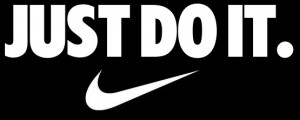ETHICAL RESPONSIBILITY- JUST DO IT NIKE.
Nike is one of the eminent franchises in the world, which dominates the clothing industry, specifically in athletic wear. In 2013, Nike had revenue of over $24 billion and operated over 753 retail outlets around the world[1]; with most of their factories located in Asia. Despite the recognition and status of their brand, there are allegations of Nike exploiting workers by not offering them their minimum wages. This can be shown in the article titled, “Nike Supplier ‘Resisting pay rises’ in Indonesia,” published on 15/01/2013 by Kathy Marks.[2] I’ll be discussing the unethical behavior demonstrated by Nike in this article.
As stated by Kathy Marks, “ Nike supplier factories have pressure workers into renouncing their right to a minimum wage.”2 Through this statement the brand image of Nike is being tainted. They are portrayed as a company that does not comply with the target countries regulations and do not respect the rights of their employees. If the internal stakeholder of a company are not content with their working condition that illustrates that the company isn’t processing optimally. The average salary of Nike’s Indonesian worker is $150 per month, which is regarded as a “poverty wage.”[3] In my opinion, I find this very unfair and unjustified as Nike sells some of the sneakers made in Indonesia at a market price of $300/pair[4], which is double the salary earned per month. This means that the workers are not receiving proper remuneration and appreciation. Thus, they are not maximizing their value in the company, as they are not benefiting from the sales of the company. This ruins the Nike brand image as the community is dissatisfied by their ethical and social responsibility. As a result less people would be willing to buy $300 shoes if they knew how Nike conducts itself towards the Indonesian workers.
In conclusion, the article “Nike Supplier ‘Resisting pay rises’ in Indonesia,” show how ethically irresponsible Nike is, as they can survive in the market by offering the set minimum wages but have decided to be selfish. Thus hurting their employees by not offering them what they sincerely deserve. For Nike to be recognized as ethically responsible to the community once again, they need to act with fairness, equity and integrity to all their stakeholders that include their employees. Following the laws and regulations set by their target countries can do this.
BIBLIOGRAPHY
[1] http://www.statista.com/statistics/250287/total-number-of-nike-retail-stores-worldwide/
Website Title: Statista
Article Title: “Total number of Nike retail stores worldwide 2009-2013”
Website Title: The Independent
Publisher: Independent Digital News and Media
Author: Kath Marks
Article Title: “Nike Supplier ‘resisting pay rises’ in Indonesia”
[3]http://www.teamsweat.org/2011/01/31/nikes-indonesian-workers-are-still-paid-a-poverty-wage/
Website Title: TeamSweat »
Article Title: “NIKE’S INDONESIAN WORKERS ARE STILL PAID A POVERTY WAGE”
[4]http://search.proquest.com/docview/1034345684
Publisher: The Wall Street Journal
Author: Banjo Shelly
Article Title: Le Bron Sneakers to test $300 limit
